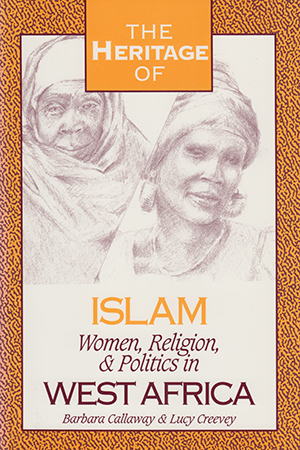
- 1994/221 pages
The Heritage of Islam:
Women, Religion, and Politics in West Africa
Focusing on whether Islam acts as a barrier to women in the process of social change and development, they address a series of important questions: Is the pattern of training and education different for Muslim and non-Muslim girls? Comparatively, what is the domestic life of a Muslim woman like? How do Muslim women fare in the economy, in both the wage-labor force and in the informal sector? Do Muslim women act as a political group, and are they involved in politics in any way that differs from the political participation of other West African women? In short, how is a Muslim woman's life different from that of her animist or Christian sister?
These questions are placed in the context of the on-going controversy over the role of Islam in the secular realm; the particular history of West Africa; and the position of women in pre-Islamic West African society, which has an important bearing on their present situation.
The authors also examine the impact of modernization and industrialization, as well as nationalist reactions to colonialism and neocolonialism, on Islamic women in West Africa.







